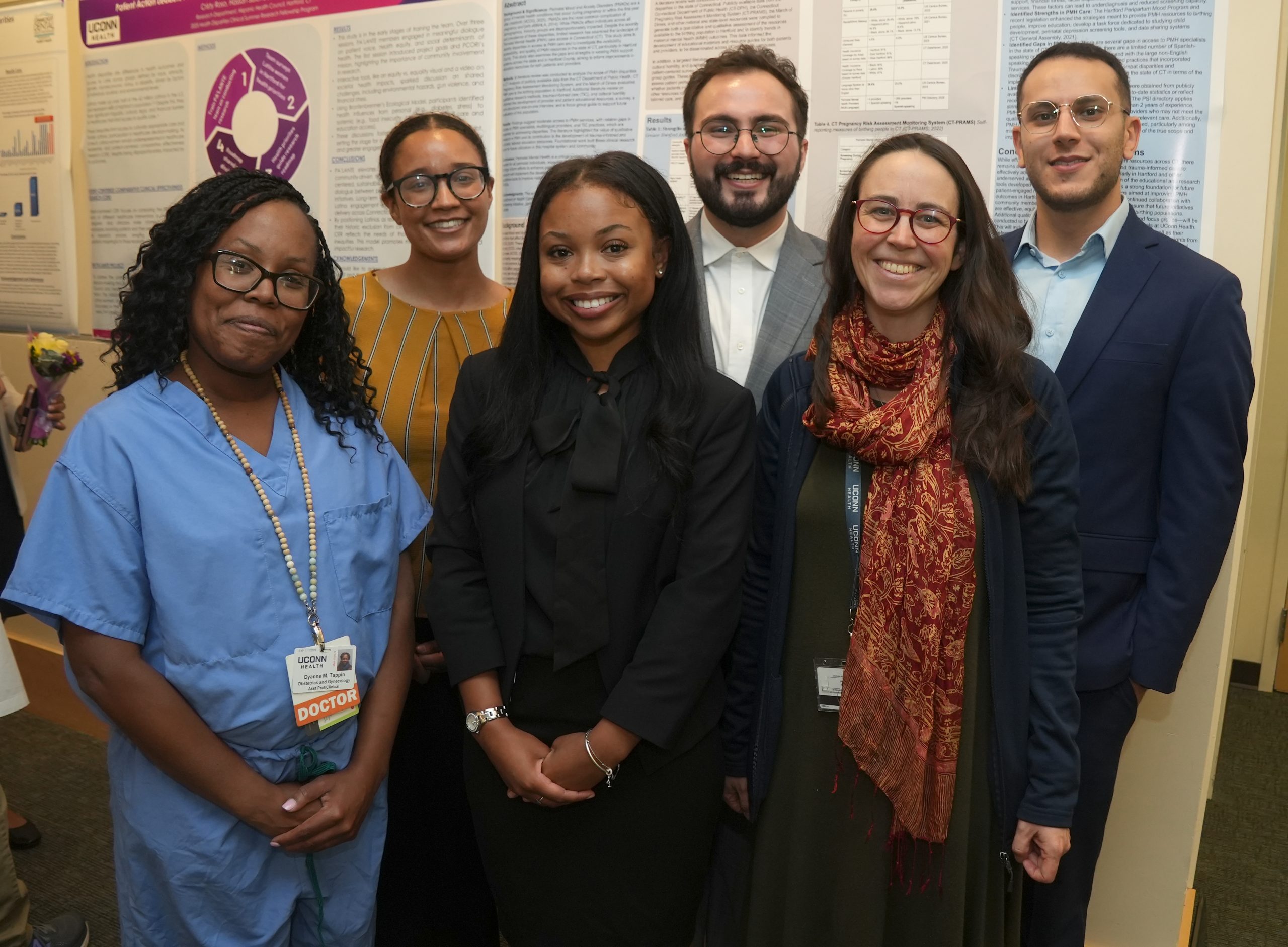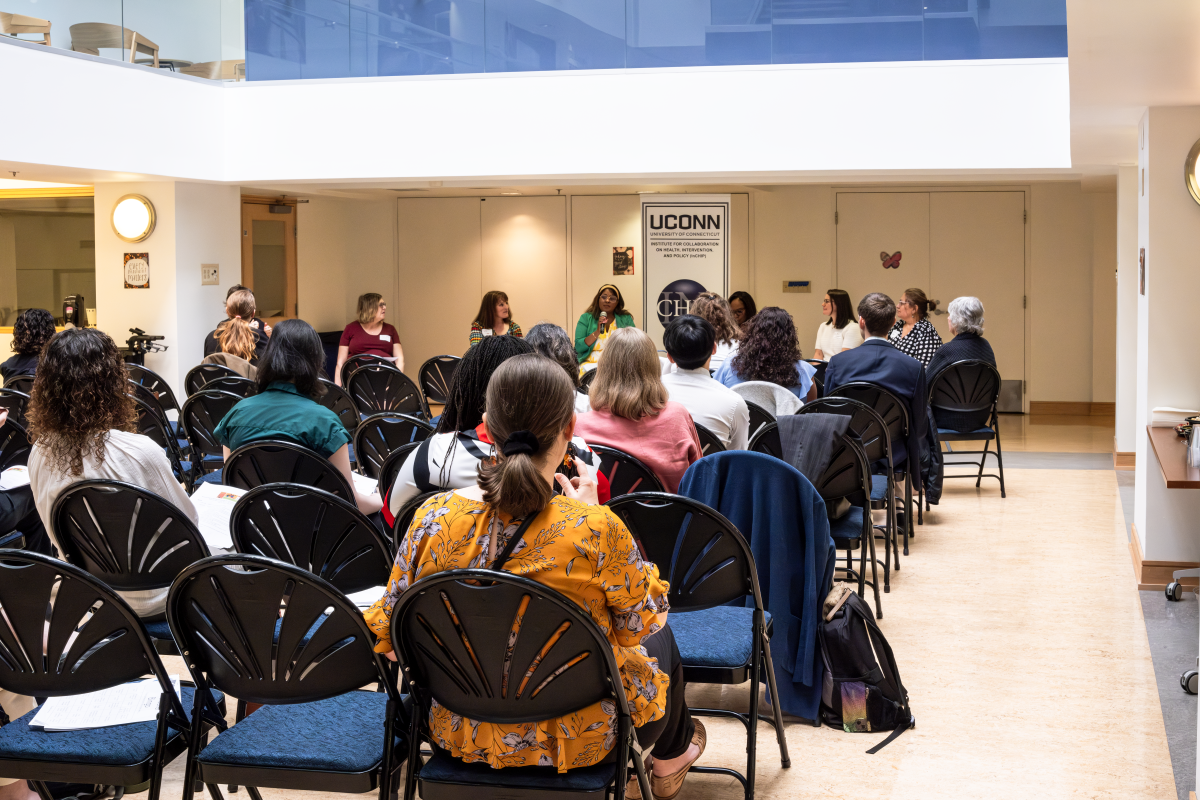Spencer Award to Fund Professor’s Continued Study of Foster Care Youth in Higher Education
Many young adults celebrate their 18th and 21st birthdays with presents and cake, but those in the foster care system might dread those milestones for the uncertainty they bring.
“One story that hits my heart is that of a young woman getting ready to turn 21 and age out of the foster care system in California,” says Nathanael Okpych, an associate professor in UConn’s School of Social Work. “She was getting close to finishing a two-year college degree, but her upcoming birthday meant that instead of focusing on classes and graduation, she was worrying about where to live and whether she’d have to drop out of school.”
And hers is a so-called success story, Okpych says, because she navigated the college application process, classroom studies, homework loads, and advanced thinking without a familial support system to offer mental, emotional, and financial help.
If she failed, there was no place to fall.
“There are just so many barriers that prevent young people in foster care from reaching their dreams, especially those of getting into college and finishing college,” he says. “That’s where my research lies, trying to understand the factors that prevent them from graduating high school and getting into college and what we can do to help make that path smoother.”
Okpych, with colleague Jennifer M. Geiger from the Jane Addams College of Social Work at the University of Illinois Chicago, this summer received a Research Grant on Education from the Spencer Foundation for a new research study looking at data from 730 young adults in the California foster care system.
Those students were part of a past study that gathered information from them when they were 17, 19, 21, and 23 years old and sought permission to access even more data from the National Student Clearinghouse years into the future. This additional information will provide greater detail on things like which semesters they were enrolled in college and whether that yielded them a degree or certificate up to age 27.
“The purpose of this study is to determine the rates that young people in foster care go to college and earn a degree; are there disparities by race, gender, or sexual orientation; and what factors influenced their likelihood of finishing,” Okpych explains. “We’ll also look at aspects of their social support, education history, characteristics of the colleges they went to, how many were part-time versus full-time students.”
Another consideration of the study, he adds, is what financial support students received, including the federally funded, state-administered Education and Training Voucher, and whether receipt of the competitive funds influenced their educational path.
By next summer, Okpych says, he and Geiger will have presented their findings at conferences and written a handful of journal articles. But perhaps the most important outcome will be a short brief summarizing the study and its results that can be given to policymakers and others who can influence change.
“I don’t think students from the foster care system should have go to through Herculean efforts or have to be exceptionally bright or resilient to succeed,” he says. “What we need is to change systemic things to make their lives easier.”
He continues, “If that means offering housing during college breaks so they’re not homeless, let’s do it. If that means helping with daily living expenses, let’s do it. We need to change policies and help child welfare departments form a network of relationships for the young people in their care.”
Latest UConn Today
- Incoming UConn Medical Students Get Hands-On Summer Research ExperienceFor the first time the Health Career Opportunities Program of UConn Health offered matriculating UConn medical students summer research opportunities.
- Partnering with Communities to Improve HealthInCHIP’s Community Engagement Research Core’s latest networking event offers insights for successful community research partnerships
- Study Highlights Higher Rates, Risk Factors for Non-Fatal OverdosesA new opioid overdose study has identified several key risk factors associated with non-fatal overdoses drawing from a sample of people who use opioids in New Haven
- Archiving for Justice, Truth, and Memory: Unpacking the Baggage of What Went BeforeReflections on the importance of the newest addition to UConn’s ICTY Digital Archives, the Srebrenica Genocide Archives Collection.
- Multiple Sclerosis Patient Sees Bright FutureFrom unheard to understood
- UConn AUKUS Scholars Explore Undersea Vehicle Technology, International Collaborations in AustraliaFive College of Engineering students studied systems thinking and interdisciplinary teamwork essential in modern undersea vehicle development













